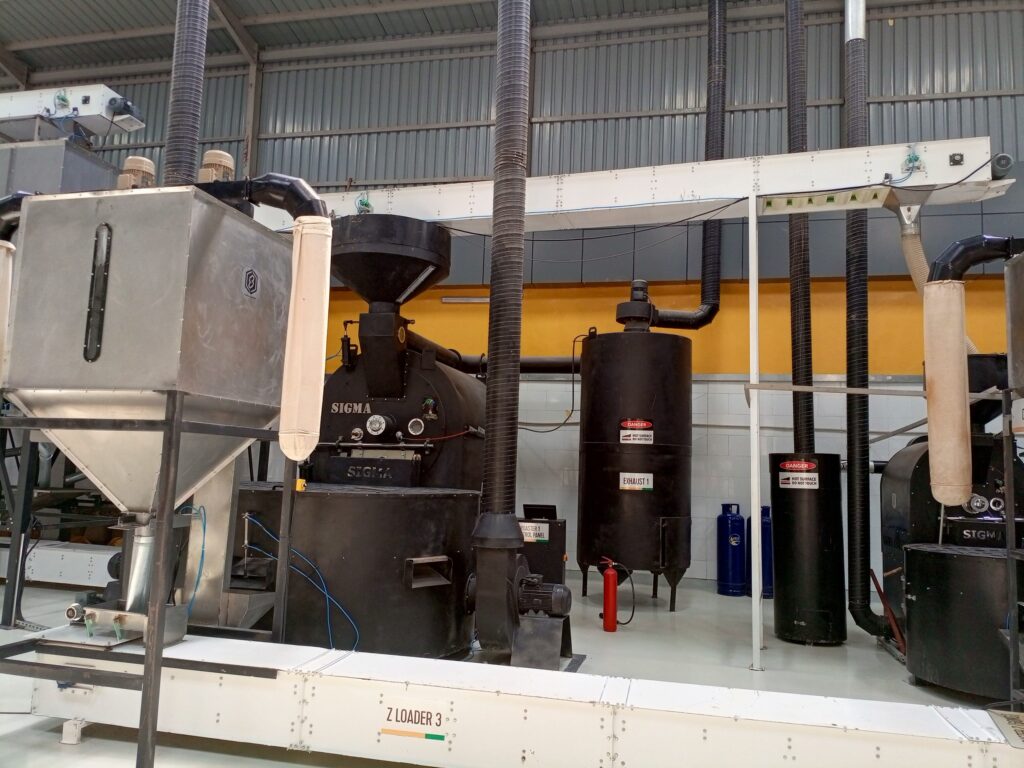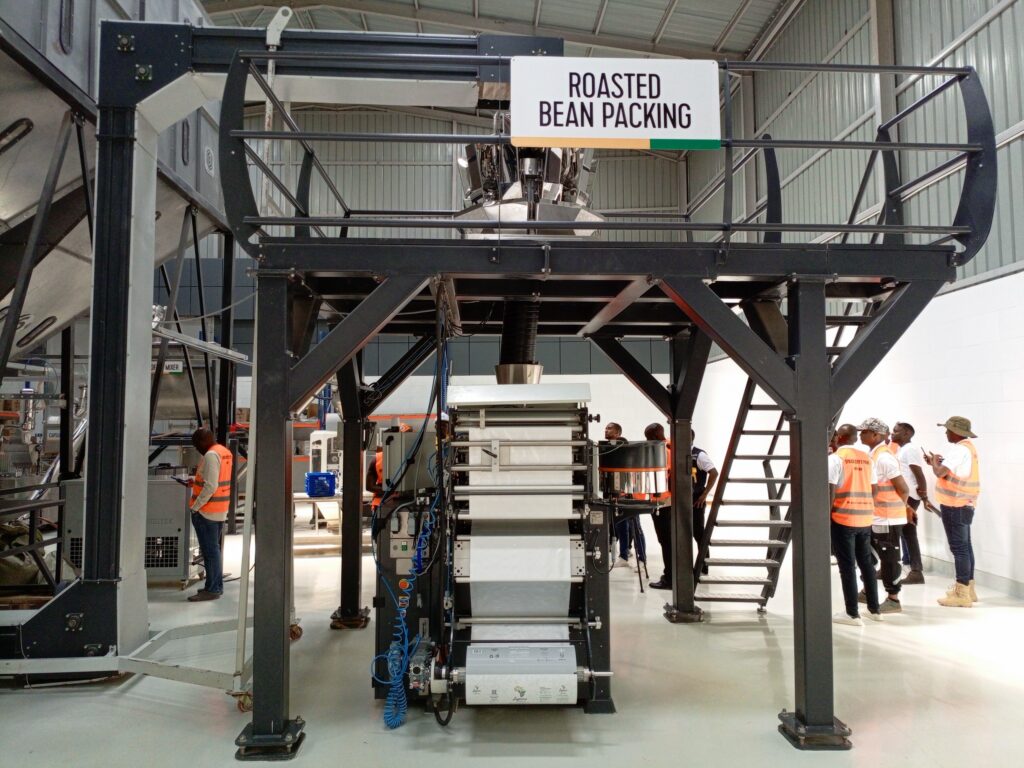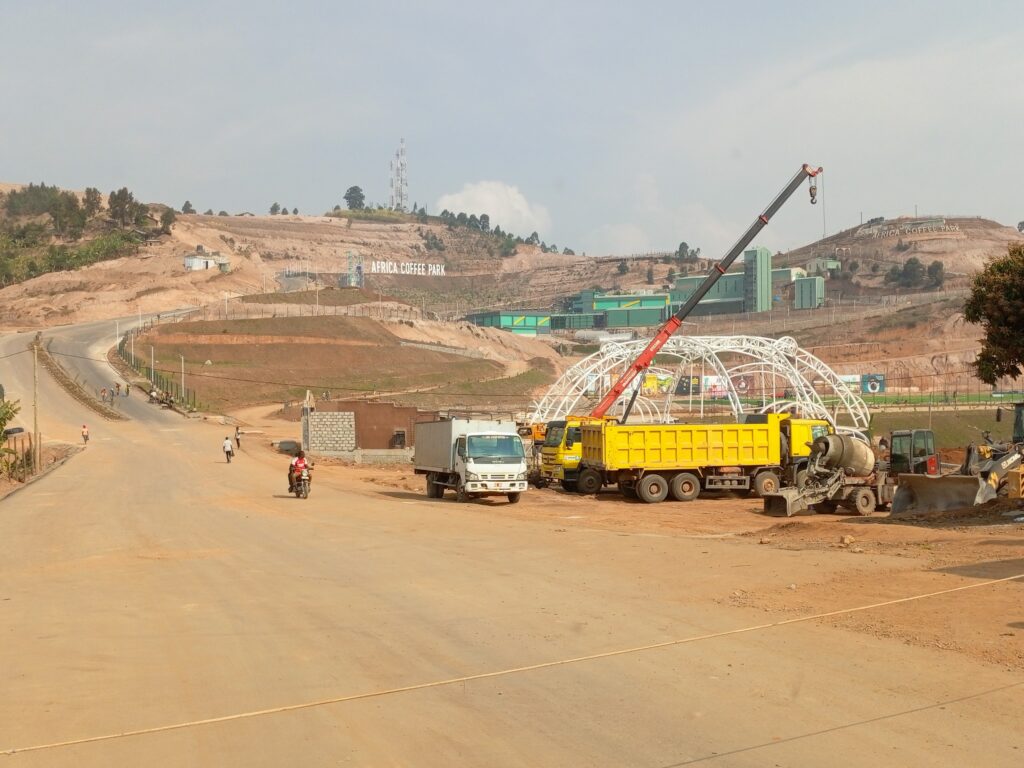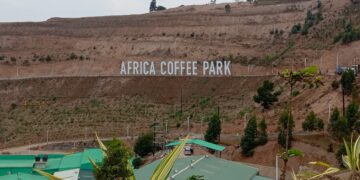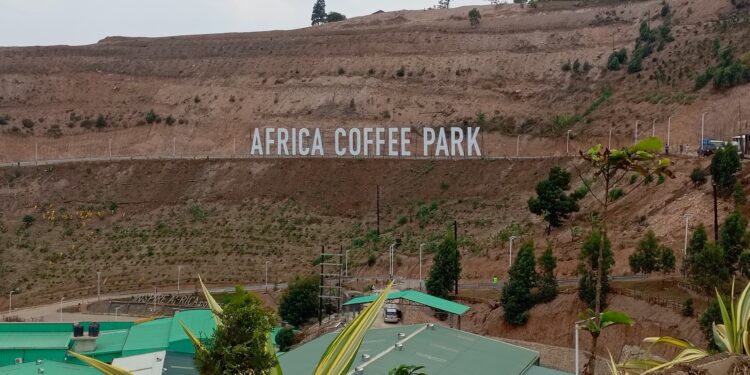Rwashamaire, Ntungamo – “Africa will only rise when we stop exporting potential and start exporting finished products. Value addition is not an option—it’s a responsibility,” says Nelson Tugume, the chief executive of Inspire Africa Coffee Group.
Tugume, an entrepreneur, is rewriting Uganda’s coffee story on the rolling hills of Rwashamaire Town Council in Ntungamo District, Western Uganda. This is where the Inspire Africa Coffee Park, a Shs112 billion agro-industrial complex, is taking shape as the country’s most ambitious investment in coffee value addition—one that could redefine Uganda’s place in the global coffee market.
The park is designed to process Uganda’s Arabica and Robusta into a wide range of high-value products including instant coffee, drip coffee, malt coffee, coffee energy drinks, and cosmetics.
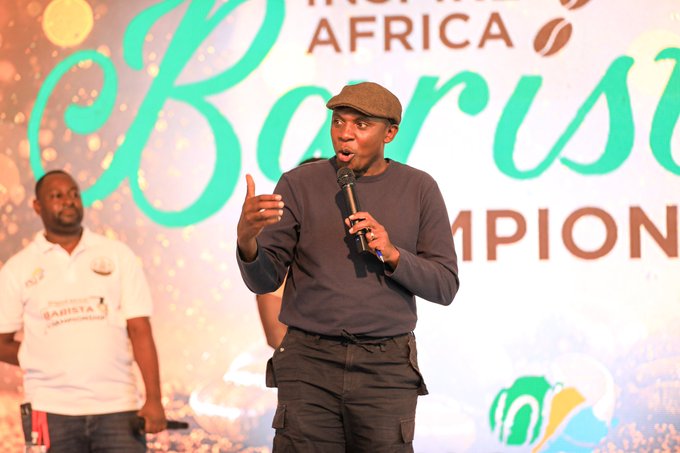
“Every raw bean we export is a job lost, a factory unbuilt, and a dream deferred. Value addition is how we turn farmers into industrialists. We are here to build brands, industries, and future, through value addition,” Tugume told journalists during a recent media tour.
Breaking Away from the “Raw Material Trap”
Uganda is the birthplace of Robusta coffee and a rising powerhouse in specialty Arabica. It is currently No.1 in Africa for Robusta exports; sixth and fifth globally in total coffee production and total coffee exports.
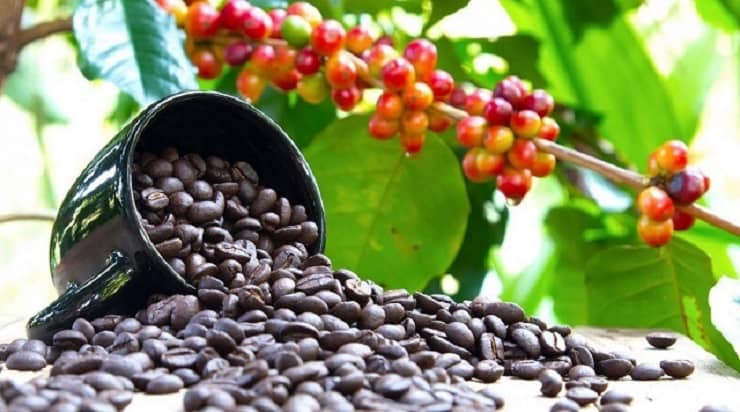
Yet, most of its beans are exported raw, fetching only a fraction of their true value. According to government figures, a kilogram of unprocessed coffee earns Uganda about $2.50, while once roasted, ground, and packaged abroad, the same amount fetches up to $40 on international markets.
“Africans are the real donors,” said President Yoweri Museveni on September 1, 2025 while opening Uganda Development Finance Summit at Speke Resort Munyonyo in Kampala. “We donated free labour to develop Europe since the 1400s when the first slaves were taken from West Africa. You produce a kilo for $2.5, but when processed into Nescafé it sells for $40. Who is the donor? You are the donor, but you don’t know,” he said.

Museveni, who inspected the project in May 2024, said the factory was central to ending this “hemorrhage.” “When you export unprocessed beans, you are giving away jobs and industries. This factory is Chapter One in our united front for value addition,” the President said, pledging government support to complete construction.
Coffee contributes 22.6% of the country’s export earnings, supporting an estimated 12.5 million livelihoods. Uganda currently produces about 8.2 million 60-kg bags annually, with government targets to raise production to 20 million bags by 2030.
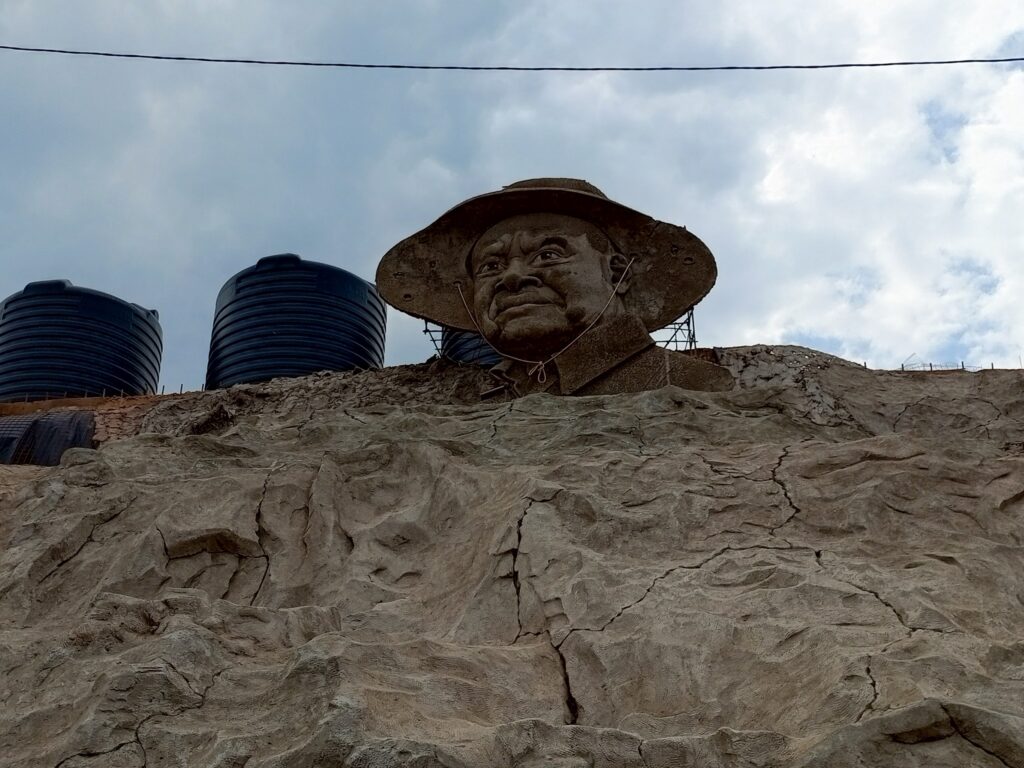
“By roasting, extracting, spray-drying and freeze-drying, we retain flavour, create premium instant coffee, and keep margins, skills, and Intellectual Property (IP) at home,” noted Tugume. “Our mission is to turn Uganda’s coffee from a raw commodity into high-value products, create dignified jobs, and prove that industrialisation—led by entrepreneurs—can drive Africa’s prosperity.”
The government, through the Coffee Investment Consortium Uganda (CICU), has invested in the project under the Office of the President’s Science, Technology and Innovation Secretariat. Construction, which began in October 2023, now stands at 85 percent, with equipment already tested, and the facility expected to open its doors to farmers once completed.

The Promise of HARAKA
Among Inspire Africa’s flagship products is HARAKA Instant Coffee, the first brand from the park set to hit shelves this year. Crafted from both Arabica and Robusta and marketed as “bold, rich, and proudly Ugandan,” HARAKA will be produced using both spray-drying and freeze-drying technology to meet international standards.
Tugume calls it “the first in a line of amazing new products” that will carry Uganda’s identity to international supermarket shelves. “Get ready to taste speed, strength, and soul in every sip,” Inspire Africa announced on its social media channels.

Farmers at the Centre
The project is also designed to transform rural farming communities. Uganda’s coffee sector sustains over 12.5 million livelihoods, yet smallholder farmers—most of them women—earn little due to poor post-harvest handling, limited market access, and fluctuating prices.
By purchasing coffee at about Shs12,000 per kilo, well above the market average of Shs9,000, Inspire Africa hopes to stabilise farmer incomes and incentivise quality. “Supporting rural farmers, especially women, is central to our mission,” Tugume said. “When farmers deliver well-processed cherries, they will fetch premium prices, which translates into better livelihoods and stronger communities.”
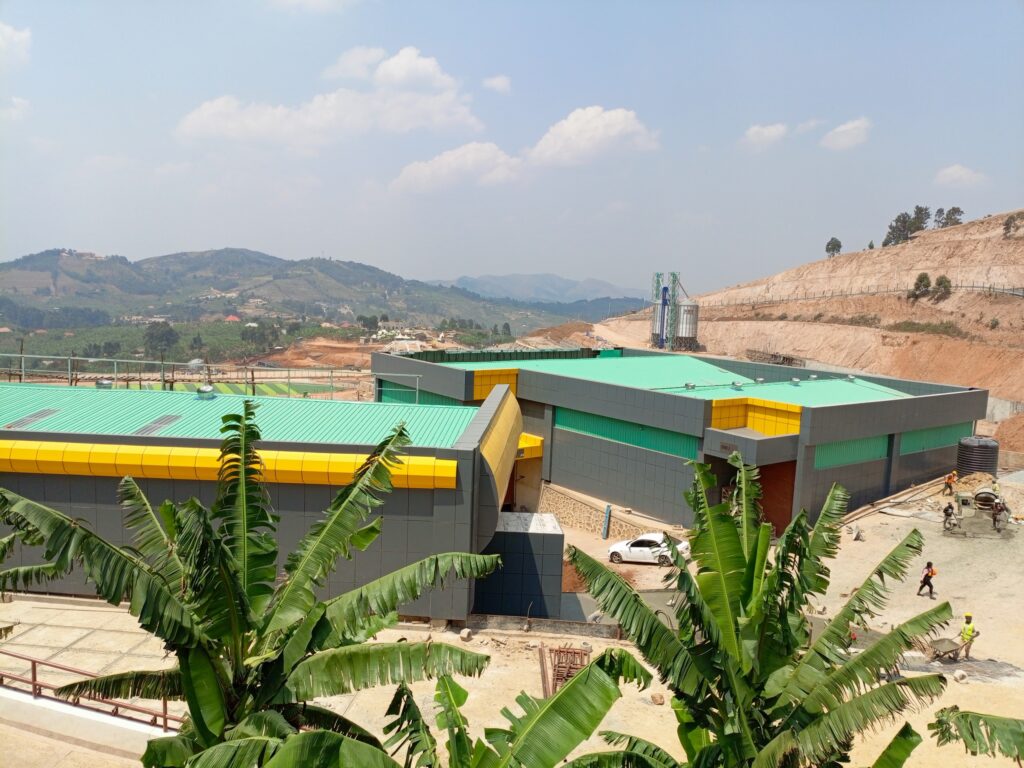
From Processing to Tourism
Beyond production, the Coffee Park is envisioned as a hub of innovation and tourism. Plans include a coffee resort, demonstration rooms, and a convention centre with an airstrip, positioning Ntungamo as a destination for both business and leisure.
According to Eng. Herbert Tinkasimire, the Project Manager, the plant will operate in several phases—from cleaning, roasting, and grinding to advanced processes like extraction, spray drying, and freeze drying. “Freeze drying especially allows us to retain the aroma and flavour that give Ugandan coffee its global edge,” stated Tinkasimire during a guided tour.
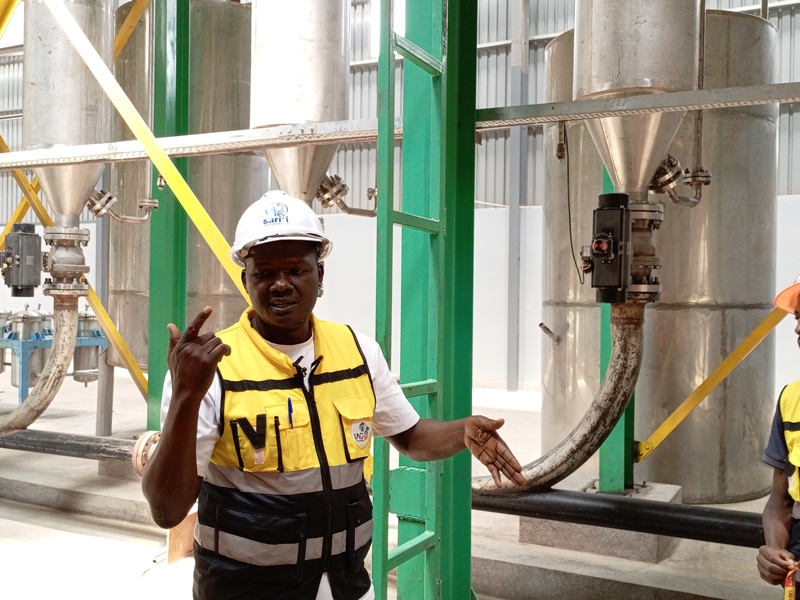
Ambrose Ndashimye, the Acting Supervisor of the Production Processing Division, described the painstaking quality control measures: “From screening and grading to density separation and polishing, we make sure every bean is handled with care. Our goal is to maintain the highest quality standards and ensure Uganda’s coffee competes with the best in the world.”
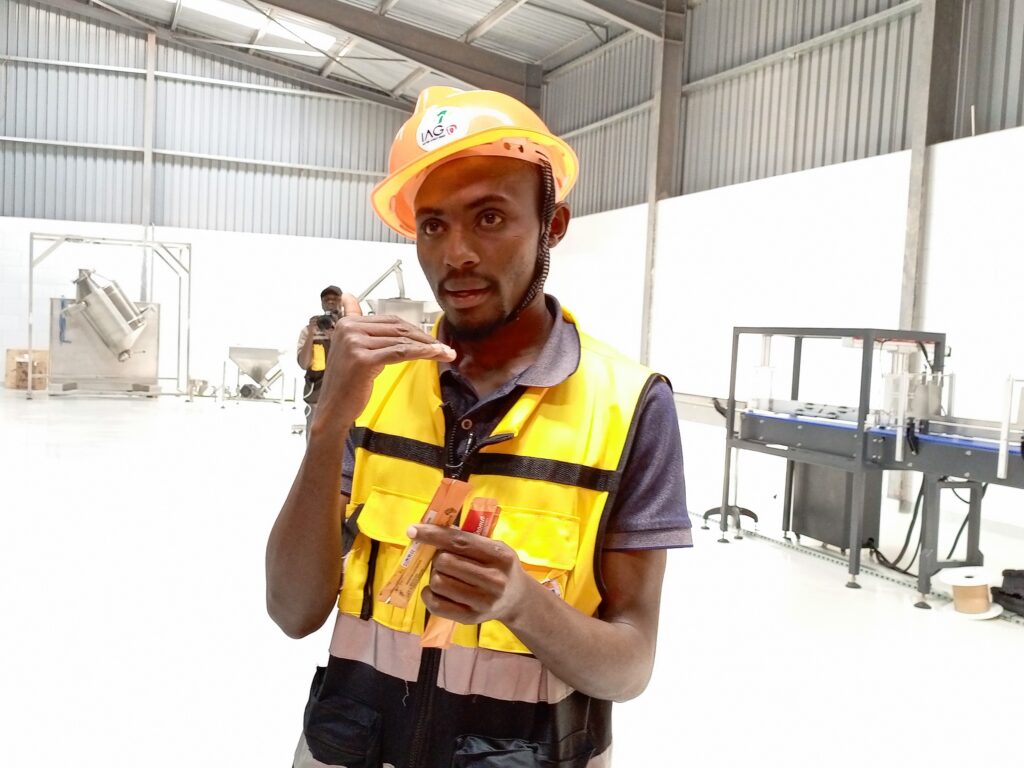
The Global Coffee Landscape
According to the International Trade Centre (ITC), world coffee production reached 168 million bags in 2023/24, with Uganda ranking 6th globally at 3.8% of the market share. Brendah Akankunda, Uganda’s ITC National Coordinator, says Europe remains the largest consumer market with 34% of global coffee revenue, while demand for single-origin and specialty coffee is projected to nearly double by 2034.
“Single-origin and specialty coffees are the fastest-growing segment. Uganda, with its unique Robusta heritage and expanding Arabica production, has an advantage. But to benefit, we must add value, invest in branding, and meet sustainability standards.”

According to her, Uganda’s coffee sector can only compete globally if farmer cooperatives are supported, quality assurance facilities completed, and stricter enforcement applied against poor harvesting and post-harvest practices. “Strengthening regulation is not about punishing farmers—it’s about protecting the value of Ugandan coffee by ensuring quality from the garden to the cup,” said Akankunda.
Political Will and Accountability
Despite broad optimism, Inspire Africa’s journey has not been without challenges. Some Members of Parliament, including Leader of Opposition Joel Ssenyonyi, have raised concerns about the lack of a formal Memorandum of Understanding between the government and Inspire Africa.
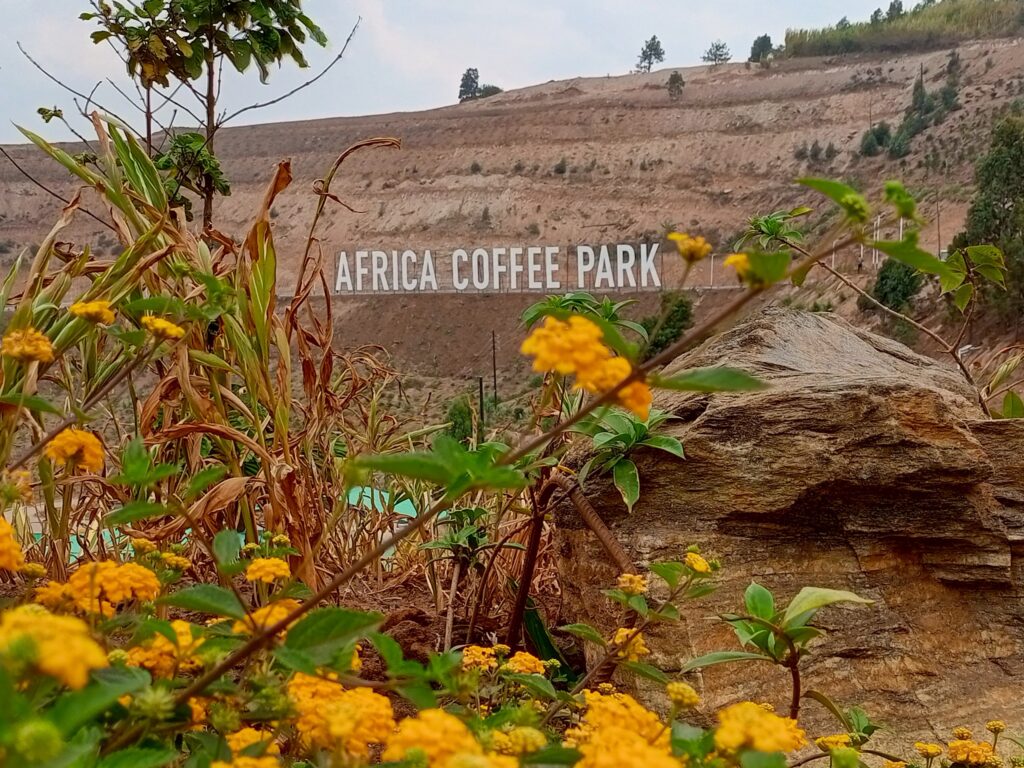
However, during an oversight visit, the Parliamentary Committee on Science, Technology, and Innovation praised the park’s potential impact but also called for greater accountability. Tugume, however, insists that the private sector must be trusted to lead Uganda’s industrial transformation.
“We are at war with many people. Some think we are taking their lunch. But this factory belongs to the farmers. It will employ thousands, increase incomes, and build industries,” he noted. “Government expenditure alone will never industrialise Uganda. What we need is for the state to create an enabling environment and let entrepreneurs innovate. That is how we build industries.”
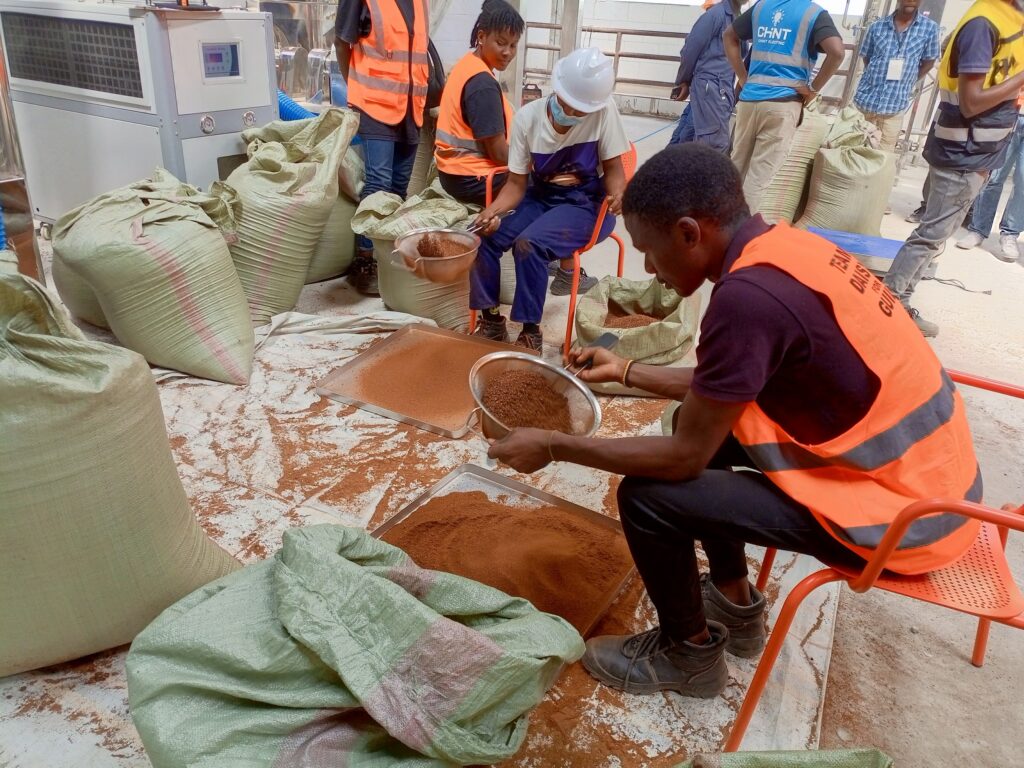
Coffee as Heritage and Identity
For many, coffee is more than just an economic commodity. Journalist and analyst Angelo Izama, framed it as part of Uganda’s global identity: “Coffee is part of our national story. Yet, too often, the story of coffee has been told by others, not by us. If we own our coffee narrative, we will not only improve the fortunes of farmers but also strengthen Uganda’s global brand.”
He urged Uganda to emulate Colombia, which has successfully branded its coffee worldwide despite producing less than Uganda.
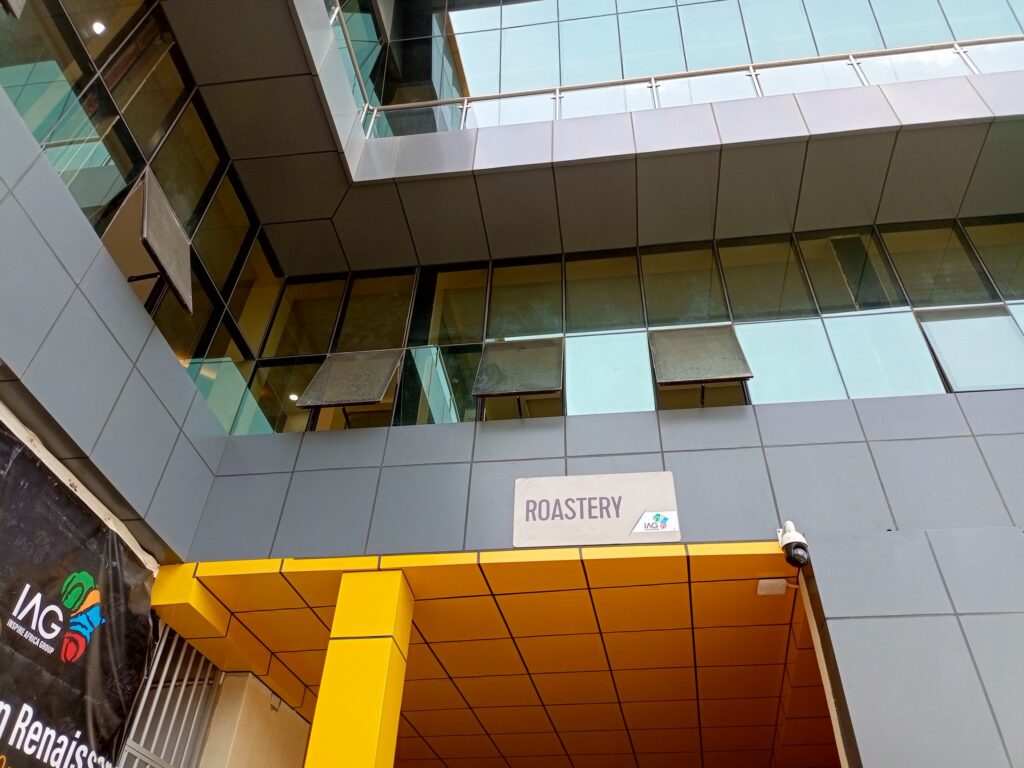
Recognising the power of narrative, Inspire Africa recently partnered with Narrative Ventures Africa to launch the Inaugural Coffee Media Boot Camp Fellowship 2025. Hosted at the Park in July 2025, the boot camp equipped journalists in agribusiness reporting, global coffee trends, and storytelling for impact.
NBS TV journalist Canary Mugume, who coordinated the fellowship, said the media plays a critical role: “Coffee is Uganda’s lifeline. But too often, its story is reduced to numbers and exports. By equipping journalists with knowledge, we can elevate informed storytelling that connects policy debates to the everyday lives of farmers.”
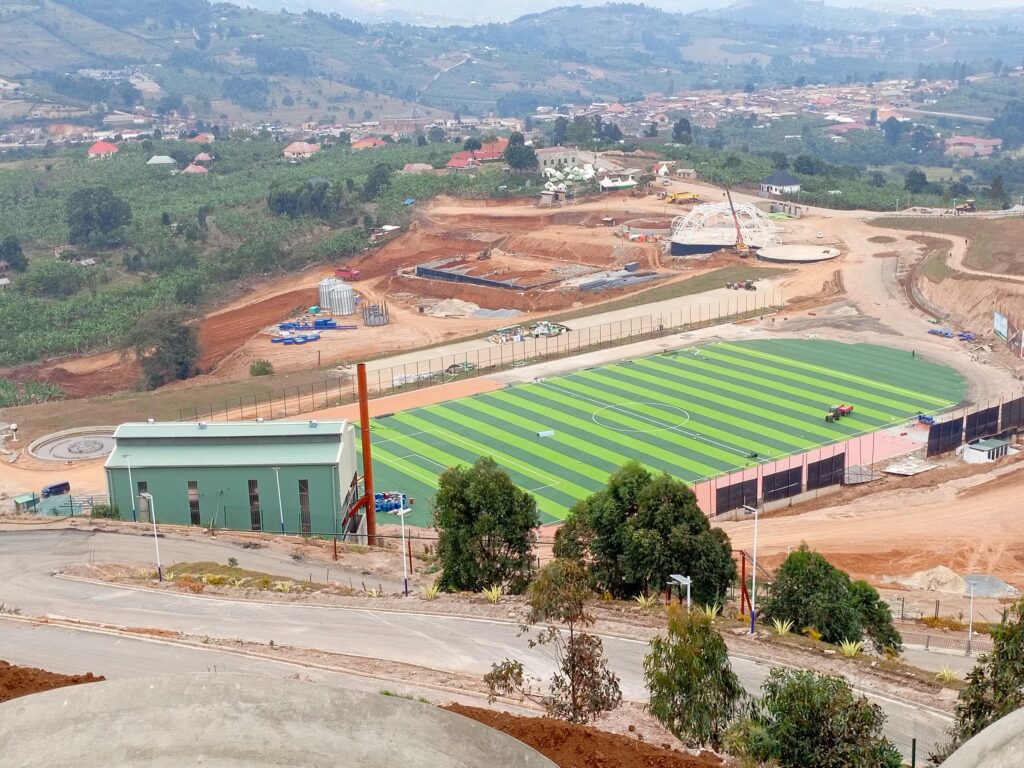
Regional and Continental Implications
Hon. George Odong, Chairperson of Uganda’s chapter at the East African Legislative Assembly (EALA), placed the Coffee Park within a broader African context.
“For centuries, Africa has been defined as a supplier of raw materials. Value addition is how we reclaim sovereignty. Nations succeed not just because of resources, but because they own and project their stories.” “Coffee is our story, our identity, and our future. It is time we told it ourselves.”
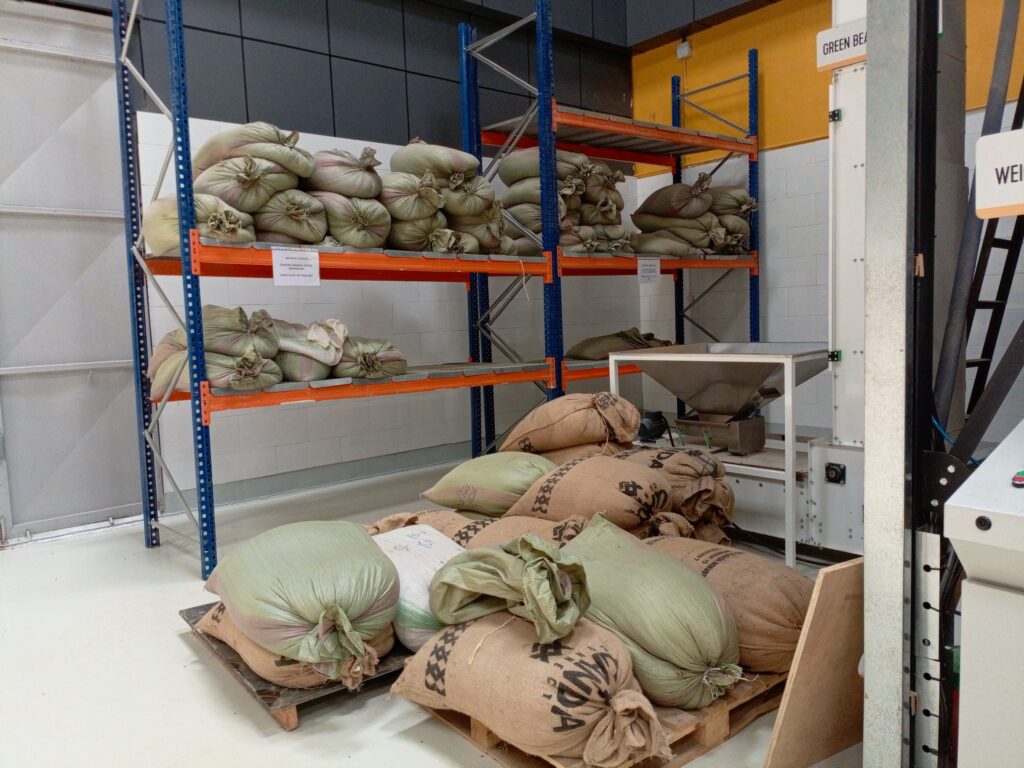
He urged African countries to negotiate trade agreements as blocs rather than as individuals, warning that unilateral deals weaken the continent’s position. “Africa is not just a continent—it is an experience, an identity, a story. To succeed in this new Renaissance, we must own our resources, finance our future with African-driven investment, tell our story with pride, negotiate as a united bloc, and empower our people through skills, innovation, and identity.”
If successful, Inspire Africa Coffee Park could quadruple Uganda’s coffee export revenues—from the current $2billion (in the 12 months ending June 2025) to $4 billion annually. More importantly, it signals a mindset shift: that Uganda can move from being a supplier of raw beans to a proud exporter of finished products with global appeal.
